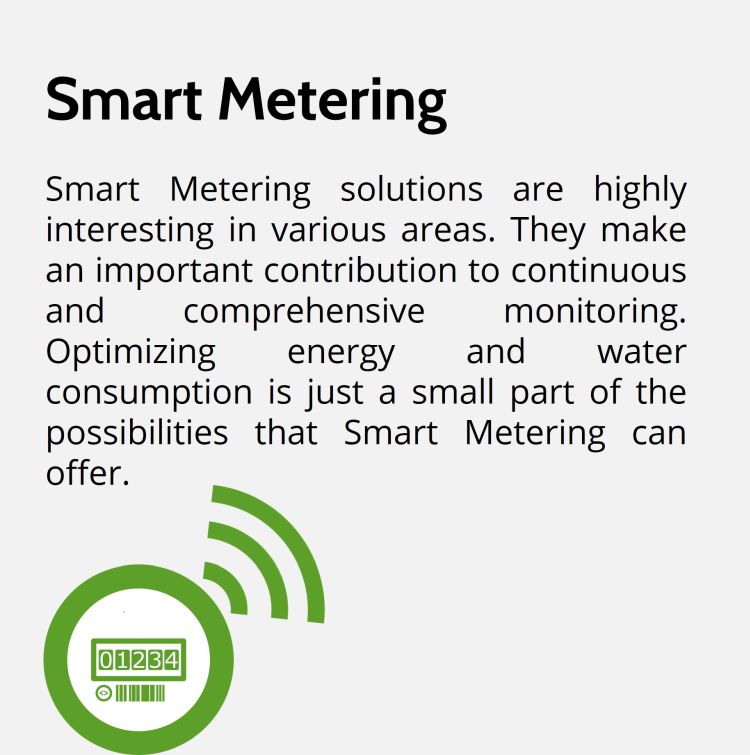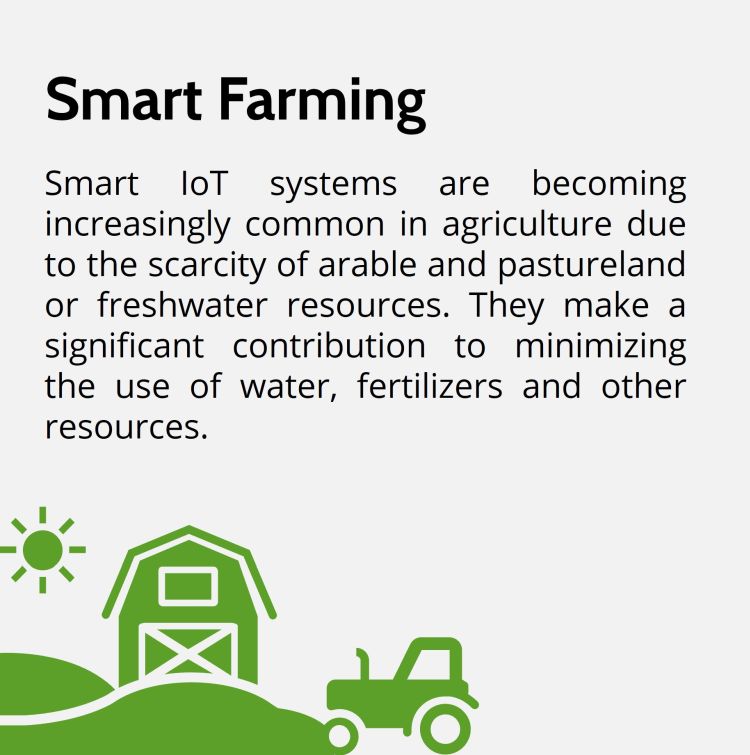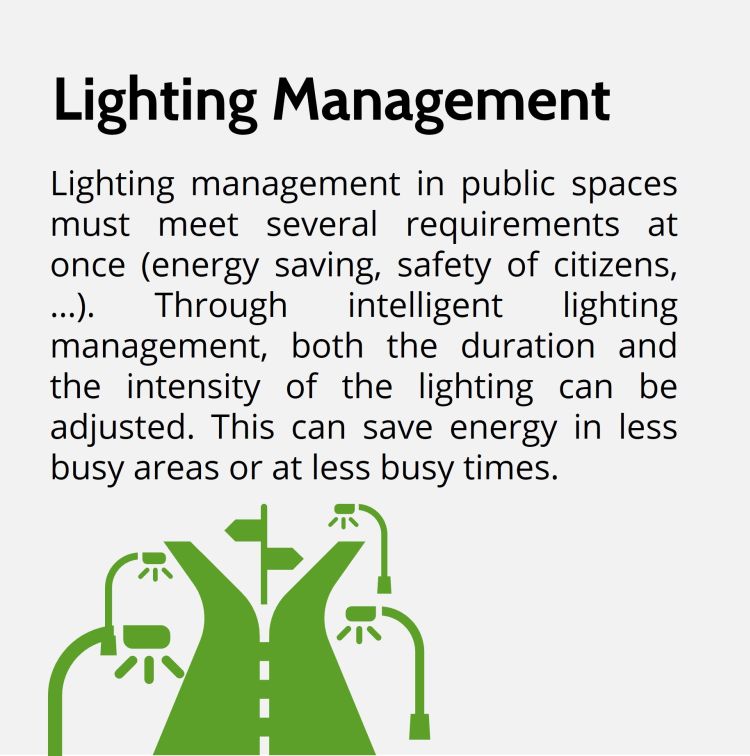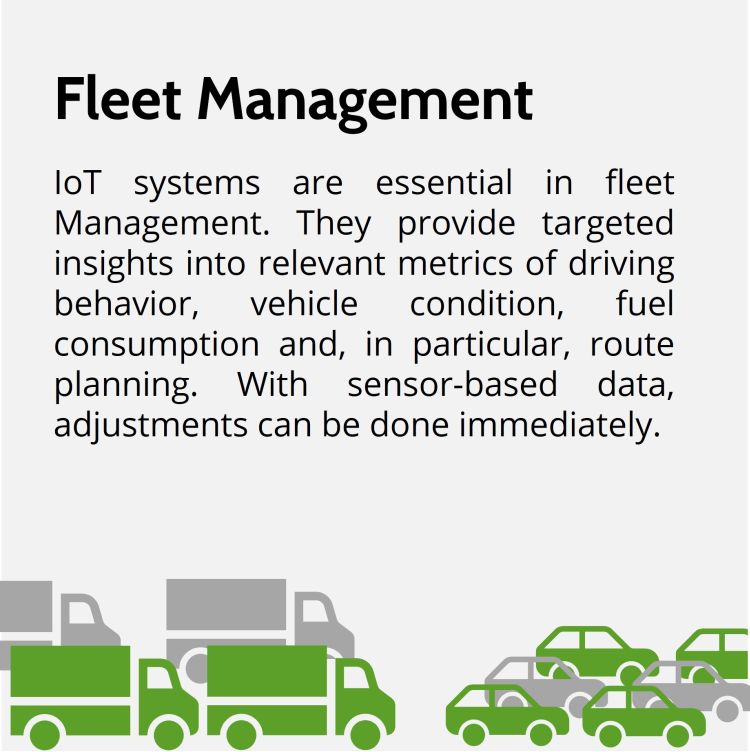To say that IoT systems can save the world would probably be a bit of a stretch at this point. However, the significance that a networked environment can create in terms of sustainability should not be underestimated. Industrialization has been accompanied by a massive consumption of resources, which has already led to a shortage of resources in one place or another, or will do so. New technological innovations in the fields of IoT, AI or robotics are playing a major role in changing industrial processes and integrating environmentally friendly and resource-saving components into existing processes.
Especially in the field of IoT, such changes have become noticeable. Advances in wireless connectivity of devices and IoT sensor technologies are major drivers for sustainable concepts. With the help of IoT systems, companies can easily introduce environmentally friendly procedures, organize processes better, and thus handle resources more responsibly – all with a view to economic efficiency.
5 IOT USE CASES FOR more sustainable PROCESSES
1. SMART METERING
Smart metering solutions are highly interesting for both companies and end consumers. For companies, technology-supported processes make an important contribution to constant and comprehensive monitoring. If smart meters are used in energy supply, for example, consumers – both companies and individuals – can monitor and optimize their energy consumption.
In water management, the collection of continuous data through smart meters also makes a valuable contribution. IoT systems using wireless connectivity can significantly reduce the cost of collecting and analyzing data from various devices such as valves, pumps or complete water systems. Last but not least, smart meters provide information on the flow rate of water or fill levels. Based on this data, leakages can be detected at an early stage and the loss of huge amounts of water can be reduced.
2. SMART FARMING
Due to the scarcity of arable and pastureland or freshwater resources, smart IoT systems are also becoming increasingly common in agriculture. Networked IoT devices collect a wide variety of data. Information on soil conditions, the condition of plants and their watering, or even the fill level of watering troughs for grazing cattle are just a tiny excerpt of what is possible in smart agriculture through IoT systems.
After evaluating this data, farmers gain important insights to be able to optimize processes. This means that fertilization, irrigation or sowing can be carried out at the best possible time and in the exact quantity. IoT systems thus make a significant contribution to minimizing the use of water, fertilizers and other resources. Crop failures due to poor soil quality, for example, can also be avoided as far as possible.
3. WASTE MANAGEMENT
IoT systems are also increasingly being used in city management to streamline processes and conserve resources. Waste management in particular benefits from continuous sensor measurement data, as the production of waste is constantly increasing due to the rise in the world's population. Once installed, sensors transmit information on, for example, the frequency of use of the container, the internal temperature or the filling levels of the waste containers. Based on the information collected, the entire waste management system can be targeted.
There are major advantages, particularly in route planning. Through better planning of the individual vehicles or by reducing the size of the vehicle fleet, both CO² emissions can be significantly reduced and traffic can be relieved. In industry, the networking of waste containers is an important factor, especially in the hazardous goods sector. Smart waste systems help to detect fires or leaks in hazardous waste containers in real time and prevent major damage to the environment.
4. LIGHTING MANAGEMENT
Lighting management in cities and communities is becoming increasingly important. Sensor-based intelligent lighting management can be used to adjust both the duration and intensity of lighting. In this way, a large part of the energy can be saved in less frequented areas or at less frequented times, without having to make any sacrifices in terms of the safety of the citizens.
Radio-controlled systems also minimize the need for maintenance. Continuous data collection allows faults and failures to be localized quickly, so that maintenance can be targeted and basic inspection trips for maintenance purposes are no longer necessary.
5. FLEET MANAGEMENT
Driving behavior, vehicle condition, fuel consumption and, in particular, route planning are elementary factors in fleet management when we consider it in terms of environmental friendliness. The reduction of CO² emissions is ubiquitously in the foreground and is also demanded by governments, so that companies are forced to take measures in this area. Installed IoT systems provide targeted insights into these metrics.
Sensors in the individual vehicles determine the exact location, for example, so that route adjustments can be made in real time during the journey. Predictive maintenance of vehicles also has the advantage of reducing harmful emissions caused by leaks.
IN SUMMARY
In the past, technological progress has had a negative impact on our resources and the environment. In the meantime, however, people are aware of this and new technological developments are being driven forward all the time that are reversing the trend. IoT technologies are ensuring that the planet becomes a little "greener" again in many areas.
The great advantage of IoT systems, however, is that processes can be optimized in many areas. The incentive for companies is to increase their own productivity and profitability with the use of IoT systems and, almost incidentally, to make a valuable contribution to sustainability with these tools.
We are proud to be able to make a small contribution to more sustainability by supporting companies with our IoT products to develop their own IoT solutions to be able to implement resource-saving processes! Our IoT protocol stacks are completely use case independent, so we can offer the right software solution for every application scenario.






